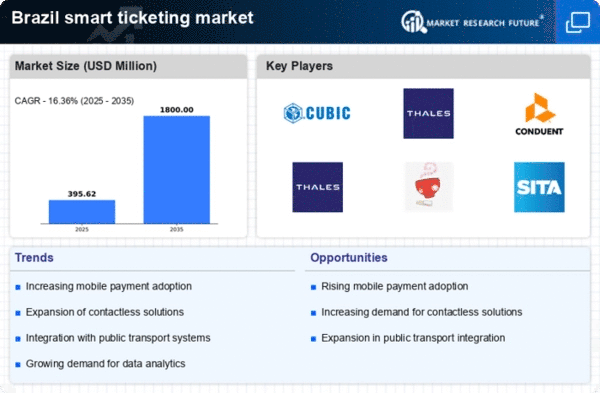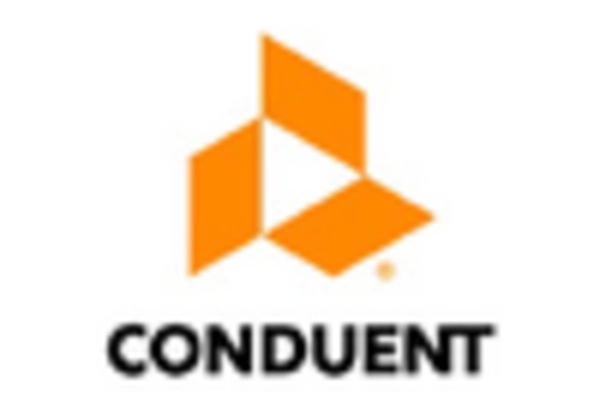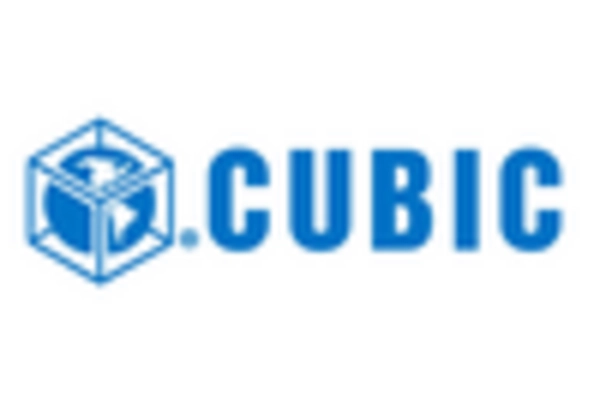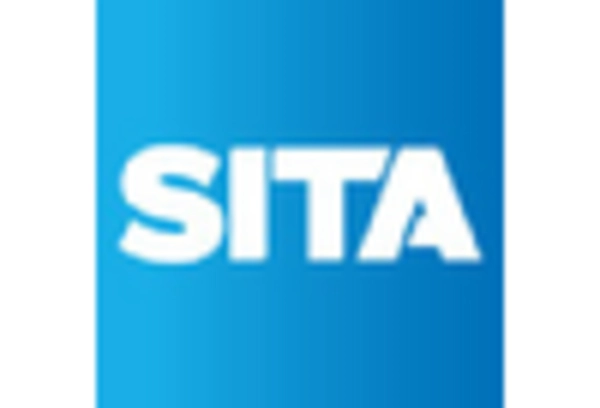Increased Focus on User Experience
The emphasis on enhancing user experience is a pivotal driver for the smart ticketing market in Brazil. As competition among transport providers intensifies, there is a growing recognition of the need to prioritize customer satisfaction. Smart ticketing solutions offer features such as real-time updates, personalized travel recommendations, and user-friendly interfaces, which are essential for attracting and retaining customers. In 2025, user experience enhancements are expected to account for a significant portion of investment in the smart ticketing market. Companies will focus on developing intuitive applications and platforms. This shift towards user-centric design not only improves customer engagement but also fosters loyalty, ultimately contributing to the market's growth. By addressing the evolving needs of commuters, the smart ticketing market is likely to thrive in an increasingly competitive landscape.
Rising Urbanization and Commuter Demand
The increasing urbanization in Brazil is driving the demand for efficient public transportation systems, thereby propelling the smart ticketing market. As urban populations grow, the need for seamless travel experiences becomes paramount. In 2025, urban areas in Brazil are projected to house over 85% of the population. This growth will increase pressure on existing transport infrastructures. Smart ticketing solutions offer a streamlined approach to managing commuter flows, reducing congestion, and enhancing user satisfaction. The integration of technology in ticketing processes not only simplifies fare collection but also provides valuable data analytics for transport authorities. This data can be utilized to optimize routes and schedules, ultimately improving service delivery. Consequently, the smart ticketing market is expected to expand as cities seek innovative solutions to accommodate the rising number of commuters.
Government Support for Digital Transformation
Government initiatives aimed at promoting digital transformation are playing a crucial role in the expansion of the smart ticketing market in Brazil. Policies encouraging the adoption of digital technologies in public transport are being implemented to enhance service efficiency and user experience. In 2025, the Brazilian government is expected to allocate approximately $500 million towards upgrading transport infrastructure, which includes the implementation of smart ticketing systems. This financial support is likely to accelerate the transition from traditional ticketing methods to more advanced, technology-driven solutions. Additionally, government backing fosters public-private partnerships, facilitating innovation and investment in the smart ticketing market. As a result, the market is poised for growth, driven by collaborative efforts between governmental bodies and private enterprises.
Technological Advancements in Payment Systems
Technological innovations in payment systems are significantly influencing the smart ticketing market in Brazil. The proliferation of contactless payment methods, including mobile wallets and NFC technology, is reshaping how consumers interact with transportation services. In 2025, it is estimated that over 60% of transactions in the public transport sector will be conducted via contactless methods. This shift not only enhances convenience for users but also reduces transaction times, thereby improving overall operational efficiency. Furthermore, the integration of advanced data analytics allows transport operators to gain insights into user behavior, enabling them to tailor services to meet evolving consumer preferences. As these technologies continue to evolve, the smart ticketing market is expected to witness substantial growth, driven by the demand for faster, more secure payment options.
Environmental Regulations and Sustainability Goals
The growing emphasis on environmental regulations and sustainability goals is influencing the smart ticketing market in Brazil. As the government and private sector commit to reducing carbon footprints, there is a push towards adopting eco-friendly transportation solutions. Smart ticketing systems facilitate this transition by promoting the use of public transport over personal vehicles, thereby reducing traffic congestion and emissions. In 2025, it is projected that smart ticketing initiatives will contribute to a 20% reduction in urban transport emissions. Furthermore, the integration of sustainability metrics into ticketing systems allows users to track their environmental impact, fostering a culture of eco-consciousness among commuters. This alignment with sustainability objectives is likely to enhance the appeal of smart ticketing solutions, driving market growth as stakeholders seek to meet regulatory requirements and consumer expectations.
















